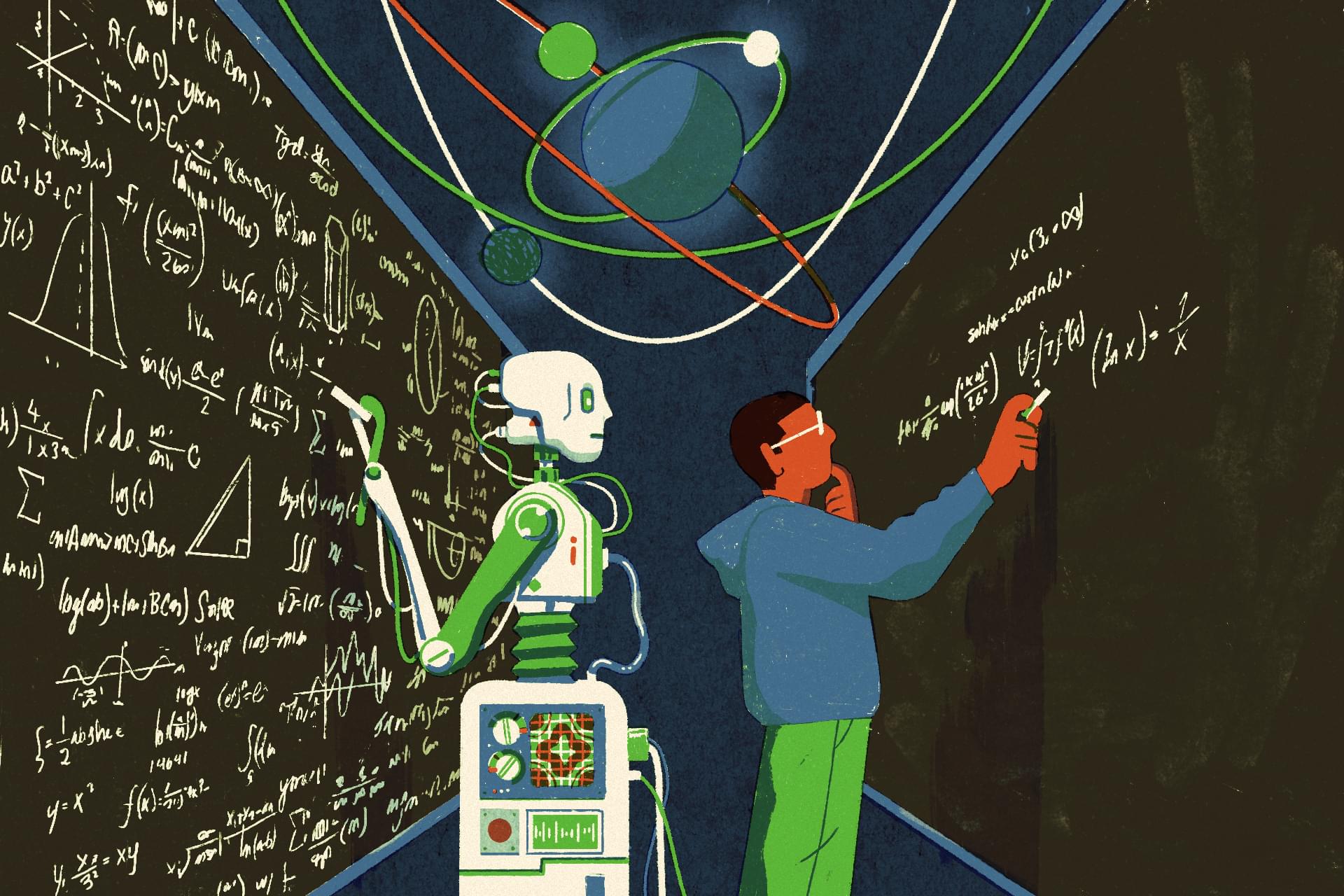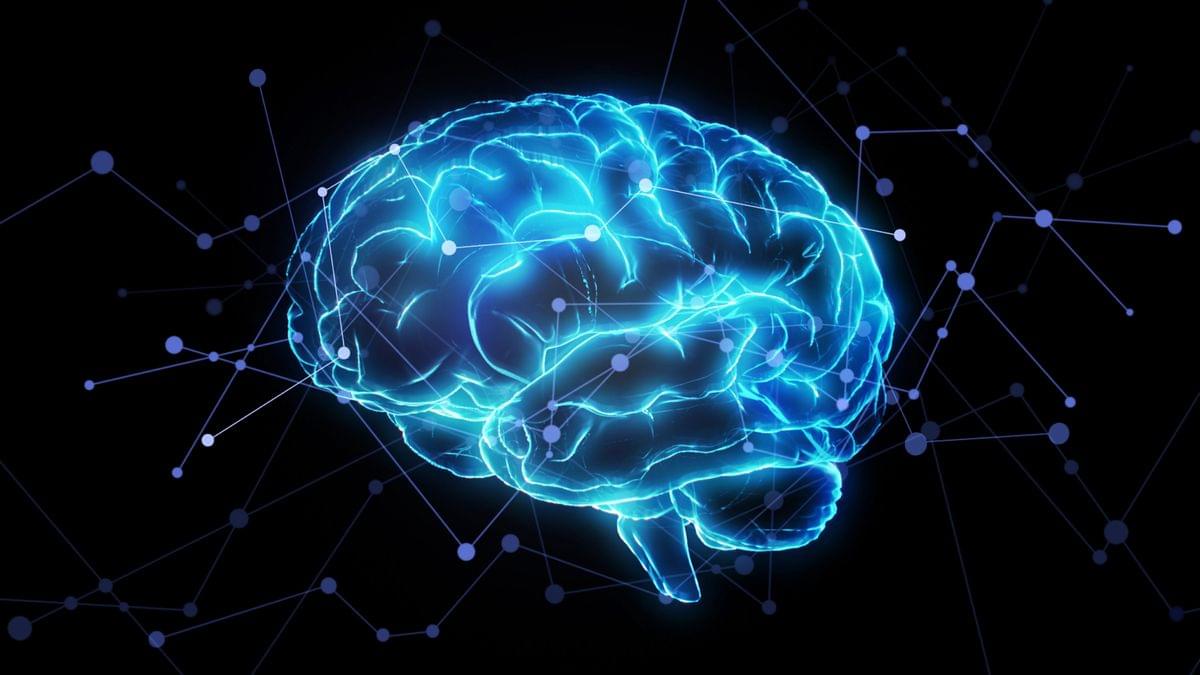Is blood donation a secret to better health? A new study explores potential benefits.



The best answer will be unsettling to both the hard skeptics of AI and the true believers.
Let’s take a step back. What exactly is reasoning, anyway?
AI companies like OpenAI are using the term reasoning to mean that their models break down a problem into smaller problems, which they tackle step by step, ultimately arriving at a better solution as a result.
43:10 Aubrey talks about costs.
In this episode of Becoming Young, Josh and Janae sit down with legendary longevity researcher Aubrey de Grey to explore the future of aging science and what it means for human lifespan. They dive deep into the latest breakthroughs in mTOR, rapamycin, senescence, and cellular rejuvenation, uncovering how cutting-edge research is redefining what’s possible for human healthspan.
Things we discussed…
The history of aging research and why scientists once believed aging was inevitable.
Aubrey de Grey’s new mouse studies and what they reveal about reversing aging.
Rapamycin, mTOR, and autophagy—how this pathway influences longevity.
The role of senolytics and clearing aging cells to extend healthspan.
What the future holds: Are we on the verge of radically extending human lifespan?
This is a must-watch for anyone interested in biohacking, anti-aging science, and longevity breakthroughs.
Subscribe for more expert interviews on longevity, biohacking, and peak performance!

“Hans A. Bethe, who discovered the violent reactions behind sunlight helped devise the atom bomb and eventually cried out against the military excesses of the cold war, died late Sunday. He was 98, among the last of the giants who inaugurated the nuclear age.” William J. Broad, New York Times, March 8, 2005.
Remembering Hans Bethe makes available a collection of more than five and one half hours of videos of one of the legendary figures of physics of the past century. He interprets the transcripts of secretly recorded conversations of interned German atomic scientists when they first heard of the use of the atomic bomb. Hans Bethe (pronounced BAY-tah) and Robert Wilson, a co-participant in the Manhattan Project discuss the development of the bomb. In 1993 he and friend, Victor Weisskopf, fondly reminisce about their early years as immigrants to upstate New York. Kurt Gottfried, Physics Department Chair, moderates these discussions. In 1994 Bethe describes the Manhattan Project for Cornell students, after being introduced by Carl Sagan, and entertains their questions.
This ‘…unpretentious man of uncommon gifts’, as the New York Times described him, received the Nobel Prize in Physics in 1967 for his work explaining how stars shine. In 1995 his friends and colleagues celebrate his influence and the 60 years he had been at Cornell. He continued as an active and productive researcher and published original scholarship for many additional years beyond his ‘official’ retirement. A complete list of his publications is included.

The mergers of massive black hole binaries could generate rich electromagnetic emissions, which allow us to probe the environments surrounding these massive black holes and gain deeper insights into the high energy astrophysics. However, due to the short timescale of binary mergers, it is crucial to predict the time of the merger in advance to devise detailed observational plans. The overwhelming noise and slow accumulation of the signal-to-noise ratio in the inspiral phase make this task particularly challenging. To address this issue, we propose a novel deep neural denoising network in this study, capable of denoising a 30-day inspiral phase signal. Following the denoising process, we perform the detection and merger time prediction based on the denoised signals.

Contemplate a future where tiny, energy-efficient brain-like networks guide autonomous machines—like drones or robots—through complex environments. To make this a reality, scientists are developing ultra-compact communication systems where light, rather than electricity, carries information between nanoscale devices.
In this study, researchers achieved a breakthrough by enabling direct on-chip communication between tiny light-sensing devices called InP nanowire photodiodes on a silicon chip. This means that light can now travel efficiently from one nanoscale component to another, creating a faster and more energy-efficient network. The system proved robust, handling signals with up to 5-bit resolution, which is similar to the information-processing levels in biological neural networks. Remarkably, it operates with minimal energy—just 0.5 microwatts, which is lower than what conventional hardware needs.
S a quadrillionth of a joule!) and allow one emitter to communicate with hundreds of other nodes simultaneously. This efficient, scalable design meets the requirements for mimicking biological neural activity, especially in tasks like autonomous navigation. + In essence, this research moves us closer to creating compact, light-powered neural networks that could one day drive intelligent machines, all while saving space and energy.

Based on how an AI model transcribes audio into text, the researchers behind the study could map brain activity that takes place during conversation more accurately than traditional models that encode specific features of language structure — such as phonemes (the simple sounds that make up words) and parts of speech (such as nouns, verbs and adjectives).
The model used in the study, called Whisper, instead takes audio files and their text transcripts, which are used as training data to map the audio to the text. It then uses the statistics of that mapping to “learn” to predict text from new audio files that it hasn’t previously heard.
From 2023, Lesley Stahl’s report on AI, chatbots and a world of unknowns. From 2024, Stahl’s story on Kenyan workers training AI who say they’re overworked, underpaid and exploited by big American tech companies. Also from 2024, Anderson Cooper’s report on \.
Check out the new data science course on Brilliant! First 30 days are free and 20% off the annual premium subscription when you use our link ➜ https://brilliant.org/sabine.
Physicists are stuck on trying to figure out why gravity and quantum mechanics don’t get along. For almost 100 years now, they have been looking for a theory of quantum gravity to solve the problem. But one of the most general expectations of a quantization of gravity is that space also has quantum fluctuations. And a team of researchers from Caltech now says they’ve got a tabletop experiment which could find those fluctuations. Could this solve the problem? Let’s take a look.
This video comes with a quiz which you can take here: https://quizwithit.com/start_thequiz/.… Check out my new quiz app ➜ http://quizwithit.com/ 💌 Support me on Donorbox ➜ https://donorbox.org/swtg 📝 Transcripts and written news on Substack ➜ https://sciencewtg.substack.com/ 👉 Transcript with links to references on Patreon ➜ / sabine 📩 Free weekly science newsletter ➜ https://sabinehossenfelder.com/newsle… 👂 Audio only podcast ➜ https://open.spotify.com/show/0MkNfXl… 🔗 Join this channel to get access to perks ➜
/ @sabinehossenfelder 🖼️ On instagram ➜
/ sciencewtg #science #sciencenews #physics.
🤓 Check out my new quiz app ➜ http://quizwithit.com/
💌 Support me on Donorbox ➜ https://donorbox.org/swtg.
📝 Transcripts and written news on Substack ➜ https://sciencewtg.substack.com/
👉 Transcript with links to references on Patreon ➜ / sabine.
📩 Free weekly science newsletter ➜ https://sabinehossenfelder.com/newsle…
👂 Audio only podcast ➜ https://open.spotify.com/show/0MkNfXl…
🔗 Join this channel to get access to perks ➜
/ @sabinehossenfelder.
🖼️ On instagram ➜ / sciencewtg.
#science #sciencenews #physics
Video made solely for educational purposes.
All rights reserved to their respective holders.
Made in association with the University of Central Florida.